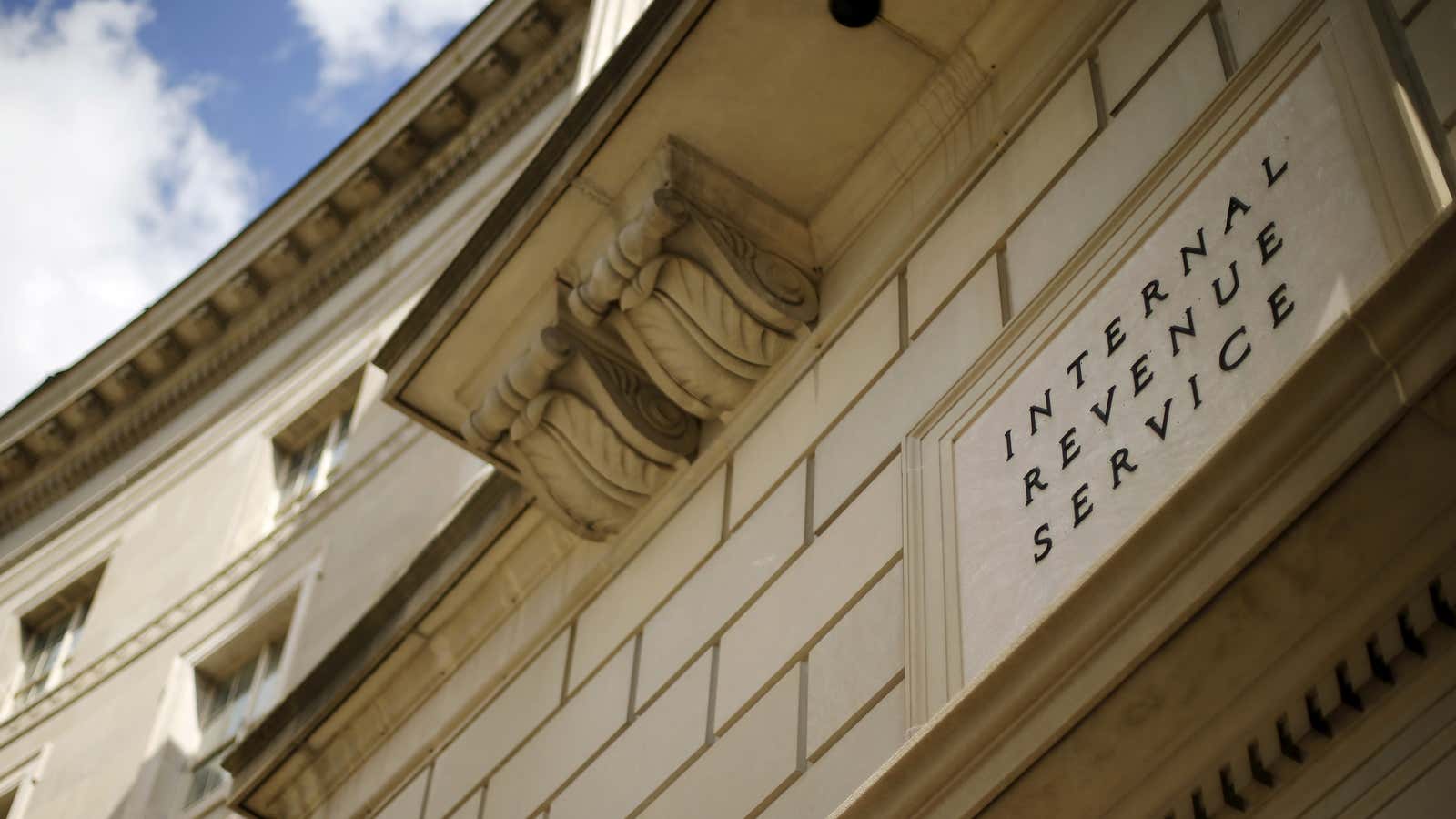President Joe Biden is asking Congress for $80 billion to beef up the Internal Revenue Service (IRS) and its enforcement abilities. As an investment, it’s a doozy: Biden’s government expects a strengthened IRS to mop up an additional $700 billion in otherwise lost tax revenue over the next decade.
As a scheme, it’s both practical and long overdue: a straightforward way to pick low-hanging fruit, without the divisive squabbles of wealth tax proposals or the dubious feasibility of a global corporate tax rate.
The gutting of the IRS has been a part of the Republican agenda ever since the party took a majority in the House of Representatives in 1995. The Republicans controlled the House again beginning in 2011, and the IRS’s funding was cut by 20% between 2010 and 2018, according to a report by the House Committee on the Budget, published last year. More than a fifth of its staff was dissolved.
“The amount of funding and staff allocated to tax enforcement activities has declined by 30 percent” in the same decade, the report said. “Consequently, between 2010 and 2018, the share of individual income tax returns the IRS examined plummeted by 46 percent, and the share of corporate income tax returns it examined dropped by 37 percent.”
The trillion-dollar tax gap
The inability to enforce even the tax laws that exist results in what is known as the “tax gap”: the difference between what taxpayers owe and what they pay on time. The gap includes underreported income and tax evasion. In the tax years 2011-13, according to the IRS’s most recent figures, the tax gap was roughly $381 billion per year. In mid-April, Charles Rettig, the head of the IRS, told the Senate Finance Committee that, given the rise of new sources of income such as cryptocurrencies, he estimated that the tax gap will be even higher in the coming years.
“It would not be outlandish that the actual tax gap could approach, and possibly exceed, $1 trillion” a year, Rettig said.
The Biden administration’s aim to close this tax gap is more modest: $700 billion over 10 years, as opposed to $1 trillion a year. But a working paper published last year by the National Bureau of Economic Research suggests that the government’s “multiplier” is approximately correct. For every $1 invested in the IRS, the government could earn $10. (One of the authors of that paper, an economist named Natasha Sarin, was a recent Treasury hire.) Even Biden’s relatively conservative $700 billion ambition could pay for a third of his $2.3 trillion infrastructure bill.
And eating away at this tax gap through more frequent and stringent audits is, in relative terms, easy to do. It’s easier than reforming the tax code to close loopholes and end tax breaks, for instance, or to tax the rich—all of which face political opposition, possibly even from Biden’s own party.
And it’s certainly easier than getting many other countries to agree to a common corporate tax rate, particularly when the soundness of such a global rate can be questioned. After all, US states frequently vie with each other to offer tax incentives and low rates to attract companies. Why should other nations stop using the same strategy just because the US is unable to prevent its companies from parking funds and assets offshore?
Countries will be difficult to persuade. Political opponents will be willfully obstructive. Funding taxmen and taxwomen to better do the job they’re already tasked to do seems, in comparison, to be a minor battle—but it can bring outsized returns.
